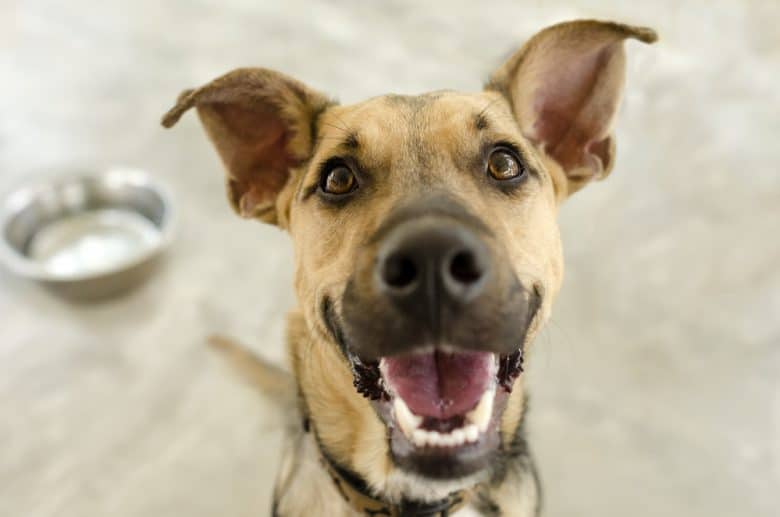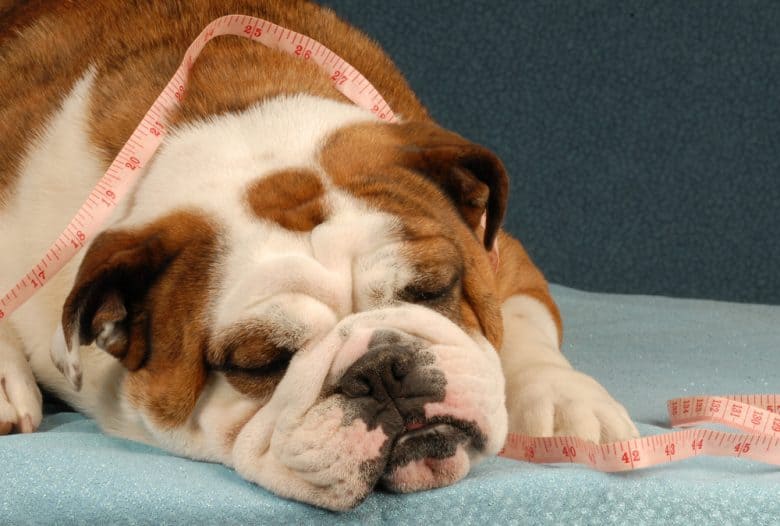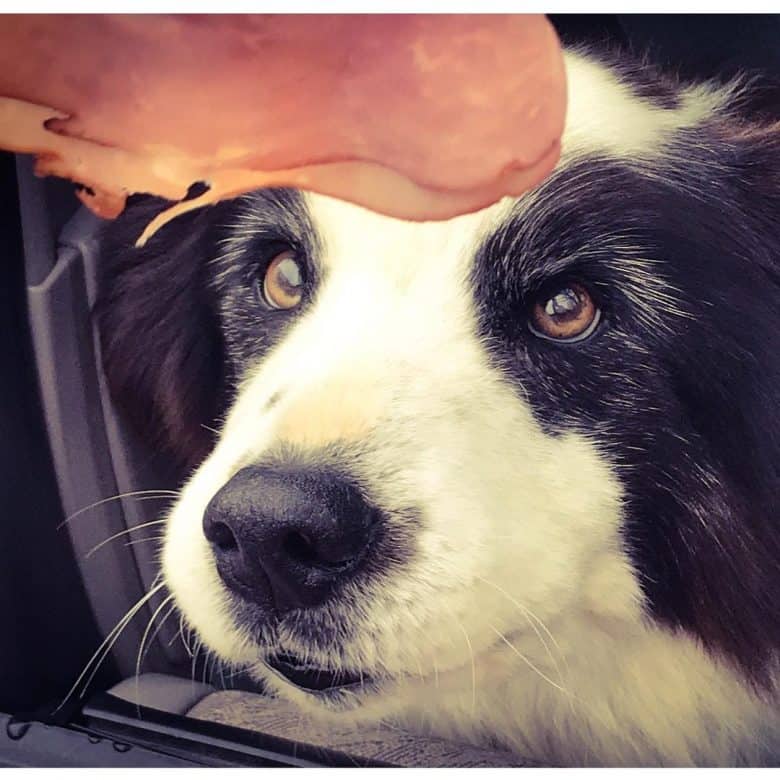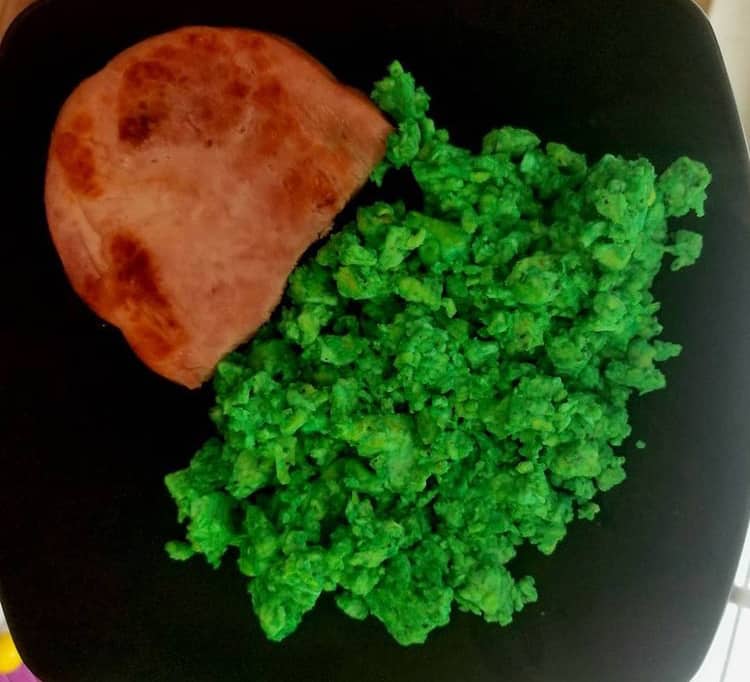Is It Okay to Feed Dogs Ham
We may earn a small commission when readers buy products through links on this page. It supports our team to keep posting great content. Learn more about this here.
The answer to the question of whether dogs can eat ham is yes and no. This is because ham is a source of protein which would usually be fine, and even beneficial for your dog, but ham also carries certain health risks that you need to consider. There may be other types of protein that are better for your dog's diet.
While ham isn't toxic to dogs, it can be harmful to pets in large quantities due to its high content of fat and sodium. That said, a few bites of ham now and again should be fine for your pooch.

This article discusses a few things you need to be aware of before feeding too much ham to your dog. It also further explains if it's safe to add ham to your dog's diet and how much is OK to feed your pup as a quick treat.
What are the Benefits of Ham for Dogs?

Ham can be tasty meat for dogs and feeding your picky dog a small amount of ham occasionally may help him to eat better.
1. Ham can help picky dogs eat better: If your pup is picky about what he eats, adding some delicious ham to his meals can help him wolf down his dinner as most dogs love its taste.
2. Ham supplies your dog with protein: Ham is a source of protein that's essential for a dog's diet. However, that's the only good aspect of hams for dogs and there are better sources of protein than ham that you could give to your dog.
What nutrients in ham are beneficial for dogs?
As we all know, the only beneficial aspect of feeding ham to dogs is that they will gain some portion of protein. A 100 gram of ham contains about 21 grams of protein.
Unfortunately, the protein found in ham is subpar compared to that found in other meats like chicken, turkey, lamb, or duck.
What are the Health Risks of Ham for Dogs?

Ham is unhealthy for dogs and there are a few health risks, such as weight gain, digestion problems, choking, and poisoning you'll want to be aware of before feeding too much ham to your dog.
- Weight gain: As ham is high in fats, it can cause your dog to put on too much weight. This could even lead to obesity and a range of more serious health concerns.
- Difficulty with digestion: Due to the fatty content of ham, some dogs may struggle to digest it and could result in stomach upset and indigestion. Too much fat could even lead to more serious issues such as pancreatitis. If your dog already is overweight or suffers from obesity, you should avoid feeding him ham.
- Choking: Some people give their dog's cooked ham bones to gnaw on but this is a very dangerous practice. Cooked bones can become very soft, causing them to splinter. These splinters can cause your dog to choke but can also pierce the internal digestive system, causing severe harm to your pet.
- Poisoning: You should also avoid feeding your dog raw ham bones as they could have bacteria, such as salmonella which could poison your dog and cause severe illness. The bacteria found in pork is only killed at very high temperatures and pork meat is also often contaminated with worms.
What's in ham that is harmful to dogs?
Processed meats, like ham, contain certain chemicals such as sodium and nitrates that are harmful to dogs.
- High Sodium: A cup of boneless ham contains a high level of sodium (about 1684.2 mg). Salt can be toxic to dogs if consumed in large amounts and can lead to vomiting, diarrhea, lethargy, excessive thirst, and abnormal accumulation of fluids. In more serious cases, too much salt can cause kidney failure and seizures in dogs.
- Preservatives: Ham contains preservatives such as nitrates and nitrites to keep it fresh and limit the growth of microbes. However, these sodium-based chemicals can cause serious health problems to dogs, especially when your dog eats ham regularly and in long term.
Is fat in ham harmful for dogs?
Yes, ham, and all pork products for that matter, are very high in fat. You will find about 17g of fat in every 100 grams of roasted ham.
While dogs need fat in their diet, fat should only account for between 15 and 20 percent of your pet's diet. Thus ham shouldn't be the main protein source in your pet's diet.
How bad is sodium in ham for dogs?
Ham contains a whopping 1,203 mg of sodium per 100 grams. Too much sodium in your dog's diet will make him sick. Salt increases your dog's thirst and will cause your pet to urinate excessively.
Consuming too much ham can put a strain on your dog's kidneys and result in sodium ion poisoning. Symptoms of this include fever, seizures, diarrhea, vomiting, swelling, and lethargy.
Is ham easy to digest for dogs?
No, pork and ham in particular are very hard for dogs to digest. This is due to the high-fat content of the meat. It also isn't as nutritious as other meats are, such as chicken or fish.
Is There Any Dog Breed Allergic to Ham?

No, there is no specific dog breed itself that is allergic to ham, however, certain canines do experience allergies to ham.
Dogs with an allergic reaction to ham will get inflamed and itchy skin, may sneeze, cough, or wheeze, suffer from indigestion, and possibly get an ear infection.
As every dog is different, try introducing your dog to just a very small amount of ham at first. If your dog experiences a negative reaction, be sure to cease feeding him ham immediately and get in touch with your vet.
What Happens If Dogs Eat Too Many Hams?
If your dog consumes too much ham, it will likely be prone to gaining excess weight,
which could lead to heart and immune system complications. Eating too much ham could also cause vomiting, diarrhea, or gastrointestinal upset to your pet.
How Should Dogs Eat Ham?
If you want to give your dog some ham, keep it to very small amounts and only very occasionally. Cut the ham up into small slivers, ensuring to remove any excess fat from the meat.
Also, only give plain ham and don't add any extra condiments or salt to the meat.
The ham also needs to be cooked before feeding as raw ham is loaded with parasites that are harmful to your pet. Also, try and avoid giving your dog table scraps or ham bones.
Be sure also that your dog doesn't have access to the trash where he could find copious amounts of leftover ham.
Is Ham a Good Treat for Dogs?

No, if you can avoid it, it's best not to use ham as a treat when training your dog.
If you really want to give your dog a tasty deli treat, you'd be much better off with a small piece of turkey, some sweet potatoes, or butternut squash.
When should dogs eat ham?
There is no particular time of day that would be better for feeding your dog ham.
As we near the holidays, many people wonder if they can also add ham to their pet's festive season diet but due to the reasons discussed above, it is not recommended.
Also, try and avoid feeding your dog ham straight from your plate at mealtimes.
Ham prepared for yourself likely has added fats and salts that aren't good for your pet and you also don't want your pet to develop any bad habits.
When should dogs not eat ham?
While no dog will really benefit from being given ham to eat if your dog struggles with weight issues then perhaps it's best to refrain from feeding ham to your furry friend.
Moreover, if your dog suffers from diabetes, then feeding them large amounts could result in blood sugar spikes which would be dangerous for your pet.
What are the Food Recipes Made with Ham for Dogs?
If your vet gives the all-clear to feed your dog a morsel of ham, you can consider mixing ham with other foods to create some tasty homemade treats.
This can include mixing ham with other proteins like chicken or eggs or baking ham into some tasty dog treats that include peanut butter, oats, or cheese.
What are the Parts and Foods of Ham?

Still unsure about feeding your dog a slice of ham? Let's have a look at the different parts of ham and food products made from ham to see which one would be suitable for your pet.
1. Ham Bones
Unfortunately, there is always an increase in vet visits around the holidays due to dogs getting hold of bones and table scraps.
Although ham bones look to be the right size and shape to serve as a chew toy for your dog, they are not suitable for this purpose. They can cause blockage in our dog's intestines and splinter into small dangerous pieces.
Be careful when throwing out ham bones to ensure your dog doesn't sneak them from the trash. In the event of an unfortunate incident, be sure to get in touch with your vet immediately.
2. Ham Slices
If you really want to feed ham to your pet, thin, small slices of cooked ham are the way to go. However, it's not really a good idea to throw a whole slice of deli meat to your dog when making your own sandwich.
As ham slices are a heavily processed form of protein, they are not suitable for canine consumption.
3. Ham Hocks
A ham hock is the part of the body where the pig's foot attaches to the leg. Also known as a pork knuckle, ham hocks should be treated like bones.
They are not suitable for your dog when cooked due to the splintering risk and when raw they could lead to bacterial infection. Either way, they are also a serious choking risk for your dog.
4. Ham Steak
As mentioned, while it is okay to feed your dog a little bit of ham every now and again, big thick pieces of this protein, such as ham steaks are best avoided.
Many people also add salt, seasoning, and flavorings like garlic, onion, and chives to their steaks, which can be toxic for your dog.
5. Cooked Ham
Boiling or cooking ham is necessary before feeding it to your pup as raw pork is very dangerous for both humans and dogs to consume.
That said, don't add any extra butter or salt to your ham before feeding them to your dog, and ensure it has cooled completely before feeding it to your pet.
6. Turkey Ham
Turkey ham is produced from turkey meat and is also cured.
Unfortunately, the curing process adds quite a bit of salt to the meat which is not good for your dog but in general lean turkey is a much better source of protein for your dog than pork.
7. Smoked Ham
Smoked or deli meat ham should be avoided. This type of ham is loaded with preservatives that are dangerous for your dog.
Should a piece fall on the floor and your dog eats it before you can whisk it away, you don't necessarily need to be concerned but don't actively feed your dog smoked ham.
8. Boiled Ham
Boiling ham is another safe way to prepare pork for your dog, although it isn't the tastiest. While you might go ahead and add butter, oil, or salt to your boiled pork, be sure not to do this for any pieces you plan on feeding to Fido.
9. Honey Ham
Honey-baked ham is some of the safest ham to feed your dog. That said, this baked ham is still loaded with fat and sodium so you don't want to actively be feeding it to your pet.
You may also find honey ham contains extra ingredients like garlic and onion which can be toxic for dogs.
Is Cooked or Raw Ham Better for Dogs?
As we have discussed, raw ham is not safe for your pet to consume. You need to make sure the ham is cooked thoroughly before adding it to your dog's bowl.
Raw pork is a breeding ground for bacteria, parasites, and worms and can cause serious salmonella poisoning.
Cooked ham should always be free from any seasoning and trimmed of any extra fat before offering it to your dog.
What Foods Can be Mixed with Ham for Dogs?

When cooking a ham for your dog, try to keep it as plain as possible. Some pet owners decide to add veggies or eggs to ham to make an interesting and palatable meal topper for their pets.
1. Cheese
While dogs can eat cheese, try and avoid processed cheeses which can be harmful to your pet, or store-bought cheese sauces that can have too much added salt and fat for your dog. Too much fat and calories might lead to an upset stomach.
2. Egg
Eggs are completely safe for your dog to eat and a ham and egg mixture can make a great topper for your dog's kibble.
Eggs are high in protein, fatty acids, and vitamins, and for this reason, are also included in commercial dog food recipes.
3. Pork
Ham is a form of pork. Pork is dangerous meat in that it can be infected with parasites and it's unclear how the pork you buy in a store has been handled prior to selling.
While some dog food companies do offer pork recipes, there are better protein choices out there for your pet.
4. Bean Soup
Be sure not to mix ham with soups that contain any additional salt or seasoning. In addition ingredients like scallions, chives, and leeks, which are commonly found in soups, as well as onions and garlic, contain thiosulfate.
This is a chemical that is toxic to dogs and should be avoided at all costs.
5. Pizza
Ham pizza should not be given to dogs. While delicious for humans, this treat is way too salty and fatty for your dog. Also, most pizzas contain flavorings like onions and garlic which your dog can't eat.
Are foods made with ham safe for dogs?
While dog foods made with ham are safe for dogs; they do contain extra calories that your pet doesn't necessarily need.
In addition, pork is sometimes used in place of more quality proteins so you need to be careful about opting for a cheaper dog food where ham serves as the primary protein source.
Are dog foods made with ham healthier for dogs?
No, while dogs need protein in their diet, their food doesn't need to include ham in order for it to be a well-balanced meal.
No matter which dog food you choose, your dog should get most of its nutrients from a well-balanced diet with the right fat to protein ratio depending on their breed size, age, and energy levels.
What is the Amount of Ham that Dogs Can Consume a Day?
Ensure to feed ham to your dog in moderation and follow the 10% rule. This means that any unbalanced treats, like ham, should only account for ten percent of your pet's daily calories.
The exact amount of ham you can feed your dog will depend on your individual pet's size, energy level, and overall condition. It's best to err on the side of caution and only feed your dogs this meat on rare, special occasions.
What are the Dog Food Recipes that Contain Ham?

Have some leftover holiday ham and want to try making something at home that includes ham as an ingredient? Have a look at these delicious recipes you can easily whip together for your beloved pet.
- Green eggs and ham recipe for dogs
- Ham and honey dog treats
- Upside down ham casserole for dogs
What are the dog food products that contain ham?
Are you looking to incorporate ham into your pet's diet? There are some commercial dog foods that feature ham as an ingredient.
- Cesar Loaf & Topper in Sauce Ham & Egg Flavor Dog Food Trays
- Weruva Bed & Breakfast Canned Dog Food
- Mixables Beef Entree & Beef, Ham, Bacon Recipe Dog Food Pouches
If you're not quite ready to switch over your dog's daily kibble, you can try looking for a delicious commercial pet treat that includes ham.
- Beggin' Strips Homestyle Honey 'n Ham Flavor Real Meat Dog Treats
- The Lazy Dog Cookie Co. Home For The Holidays Maple Glazed Ham Dog Treats
- Navus Naturals Serrano Ham Recipe With Lamb Flavor Dog Treats
Can Dogs Eat Derivatives of Ham?
Dogs have a habit of eating what they shouldn't. If your dog gets into leftover ham, ham bones, or table scraps while you're away, be sure to watch your dog closely and contact your vet if necessary.
While dogs have very strong stomachs, these derivatives of ham could cause your dog to develop diarrhea or vomiting.
What diseases in dogs can ham help?
While ham is more likely to cause diseases than help any, you can try giving your dog a little bit of ham if your dog is underweight or malnourished. Dogs that need to quickly put on weight can benefit from the high-fat content of ham.
That said, these dogs often have a sensitive digestive system which the sodium content of ham can irritate so feeding your underweight dog ham should only be done under guidance from a vet.
What are Other Foods that Dogs Can Eat Similar to Ham?
Instead of feeding your dog ham, there are other foods you can consider that will make a tasty treat for your pet.
- Chicken which is a lean, affordable protein source that is the main ingredient in many commercial dog foods. A chicken and rice diet is also often recommended for sick or recovering pets.
- Peanut Butter which is a tasty treat loaded with nutritional benefits. Along with keeping your pet occupied for hours, slathering a long toy with peanut butter will supply your pet with healthy fats, protein, vitamin B, vitamin E, and niacin.
- Turkey which is a tasty novel protein source often included in limited ingredient diets. Turkey is rich in protein, riboflavin, and phosphorus.
- Duck which is another less common protein source that is often given to dogs with allergies. Duck is full of iron and is a tasty, easily digestible protein for pets.
So, Can My Dog Eats Ham?

As you have read, your dog can safely eat ham. That is if it is cooked, unseasoned, and served plain to your pet.
You also want to be sure you don't overdo it when feeding your dog ham as too much could cause a health risk for your dog.
Just be careful, before introducing a new food like ham to your dog, it's best to consult with your vet. This is because dogs with certain diseases, like obesity and diabetes, might not do well from a diet packed with pork.
Does your pet love ham? We'd love to hear all about your furry family member and how he enjoys his ham in the comments below.
Source: https://www.k9web.com/can-dogs-eat-ham/
Belum ada Komentar untuk "Is It Okay to Feed Dogs Ham"
Posting Komentar